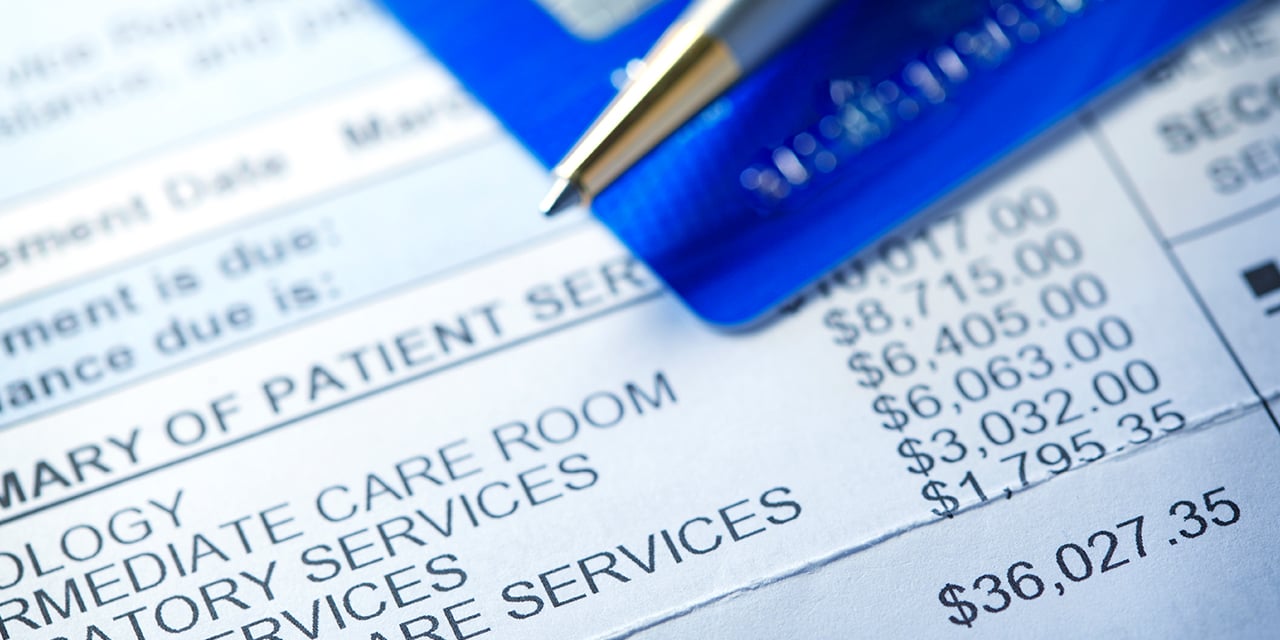
Five Dos and Don’ts of Medical Debt
It’s easy to get overwhelmed when that first big medical bill arrives. Here are five dos and don’ts so you don’t pay more than you have to.
Over 90% of the United States population has some form of health insurance. Still, though, 41% of adults have health care debt -- and 1 in 5 Americans say they are having difficulty keeping up with their medical expenses. If you find yourself struggling with medical debt, you may have more options than you realize. Here are five dos and don’ts for what to do when that first medical bill comes due.
DO review every medical bill before making a payment.
It’s easy to get in the habit of receiving a bill in the mail and writing out a check, almost without thinking. But when you require medical services and have health insurance – whether it’s Medicare, private insurance or some combination of the two – you need to take a close look when the bill arrives. The first bill you’ll get will likely be at full retail, without any negotiated discounts applied. Soon after that, you will receive an Explanation of Benefits from the insurance company, which shows the discounted amount you are responsible for paying. You will then receive a new bill, showing the reduced patient responsibility. When your bill matches your EOB, and nothing looks amiss, you will know you’re being charged the correct amount.
DON’T be afraid to ask for help – as soon as possible.
If you’re hit with a big medical bill, your first call should be to the hospital or care provider itself. Because millions of Americans struggle with medical debt, medical systems often have programs available that can provide financial help. When calling, ask about that billing office’s “financial assistance policy” or “charity care.” Depending on such factors as the provider’s billing policies, the services provided and your income level, you could see your medical bill dramatically reduced – perhaps by half, if not more.
DO negotiate.
Even if you don’t qualify for financial assistance, you may be able to negotiate your medical bills down to a more reasonable amount. The amount you are initially charged – referred to as the chargemaster rate – is the amount hospitals open with when negotiating with insurance companies. By asking your care provider how much they actually end up billing insurance companies and Medicare, you might be able to talk your way into a lower bill. If you want to enter negotiations with some facts and figures on pricing, healthcarebluebook.com can be a useful starting point. Even if you have insurance, the billing office may be willing to take less than the amount they negotiated with the insurance company, especially in exchange for prompt payment.
DON’T put medical debts on your credit card.
When you put medical debt on your credit card, you lose a lot of the protections that medical debt provides. For one, medical debt tends to have a very low interest rate, if it has an interest rate at all – by comparison, the average credit card interest rate ranges from 15 to 25%. Also, when you put medical debt on a credit card, the hospital is now considered paid, so they have no incentive to negotiate down the expenses in question.
DO prioritize your debts.
Paying down medical bills is important, and many hospitals are willing to set up a monthly payment plan that's affordable. However, it's important to understand that credit bureaus consider medical debt to be low-priority debt, comparatively speaking, and it carries certain protections and advantages that other kinds of debt do not. For example, medical debt is weighted differently on your credit report, so missing a medical debt payment is not as financially damaging as defaulting on your mortgage or credit card bills.
Even if you have insurance, it’s easy to get overwhelmed by medical debt, especially when you open that first bill and see how much you’re being charged. Your Baird Financial Advisor can offer some perspective and guidance into fitting your medical expenses into your larger financial plans.
Editor's Note: This article was originally published in May of 2020 and was updated April 2025 with more current information.
The websites listed are not owned or associated with Robert W. Baird & Co. We have provided the links as a convenience and do not endorse any of the sites.
This information has been developed by a member of Baird Wealth Solutions Group, a team of wealth management specialists who provide support to Baird Financial Advisor teams. The information offered is provided to you for informational purposes only. Robert W. Baird & Co. Incorporated is not a legal or tax services provider and you are strongly encouraged to seek the advice of the appropriate professional advisors before taking any action. The information reflected on this page are Baird expert opinions today and are subject to change. The information provided here has not taken into consideration the investment goals or needs of any specific investor and investors should not make any investment decisions based solely on this information. Past performance is not a guarantee of future results. All investments have some level of risk, and investors have different time horizons, goals and risk tolerances, so speak to your Baird Financial Advisor before taking action.


